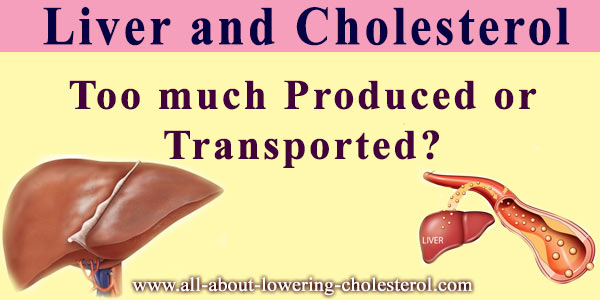
Your liver and cholesterol levels in your blood have a close relationship. You may think that cholesterol is a bad substance to have in your body, but in reality, your body needs cholesterol to make hormones and certain vitamins, build cell membranes, and aid indigestion.
Interesting Facts About Your Liver and Cholesterol Production
Cholesterol is a type of fat. However, it is not the same as fat. You may find yourself scratching your head over the relationship between fats and cholesterol. The easiest way to wrap your head around this issue is to understand that cholesterol belongs to a group of fats (lipids) called sterols.
Your liver and cholesterol are linked because the liver is the main location for cholesterol (i.e. sterol) production. It is a basic fact that the amount of cholesterol in your body comes from two sources: the foods you eat and your body’s natural production.
Every day your body is piecing together particles of fats, proteins, and carbohydrates and forming them into cholesterol within your liver. You need this function to live a healthy life; however, in some people, there is too much cholesterol produced.
Your Liver and Cholesterol Over-Production
If your liver is working properly, it will reduce its internal production of cholesterol when your diet supplies excessive amounts of cholesterol. However, if your find that your blood cholesterol levels are high, a possible problem may be that your liver does not slow its production of cholesterol in response to your diet.
In a typical diet, you eat 300 to 500 milligrams of cholesterol each day. This is less than one-third of what you need. Your liver produces about 700 to 900 mg of cholesterol per day.
Your Liver And Cholesterol – Transportation Throughout Your Body
The cholesterol from your liver and from your diet perform the same tasks. It moves through your body using the bloodstream as a waterway and land in different cells and tissues. New cell membranes, Vitamin D, hormones, and bile acids used for digestion are all made from this cholesterol.
Transportation of cholesterol is a little complicated. If you have ever placed oil and water in the same container you likely noticed that the two substances do not mix.
Cholesterol, which is a fat (oil), and your blood, which is mostly water, do not mix. Therefore, cholesterol needs a protein carrier to move within your body, which is called a lipoprotein. Two of these lipoproteins are important to your heart health: LDL (low-density lipoprotein) and HDL (high-density lipoprotein).
Your medical doctor refers to LDL as the bad cholesterol because it is the type that sticks to your artery walls forming plaque and cardiovascular disease. Your doctor calls HDL the good cholesterol because it carries cholesterol away from your arteries to your liver where it can be used for good functions such as the creation of bile acids.
Your Liver And Cholesterol – Help Your Body Control Cholesterol Levels
Your liver and cholesterol production are linked, and this is a normal function of your body that you have little control over. However, you do have some control over the amount of cholesterol in your blood.
There are a number of lifestyle factors that you can change to lower your cholesterol naturally. A heart-healthy diet low in dietary cholesterol and saturated fats combined with regular exercise and natural cholesterol-lowering supplements can help you create a healthy blood profile and an overall healthier body.
Leave this page, liver and cholesterol, and learn more about other cholesterol information when you click here
Or, go straight to All About Lowering Cholesterol Homepage

